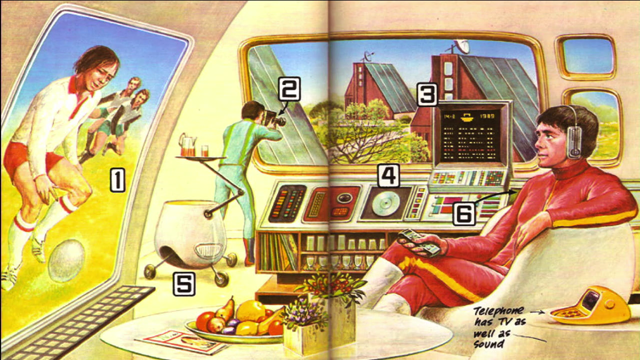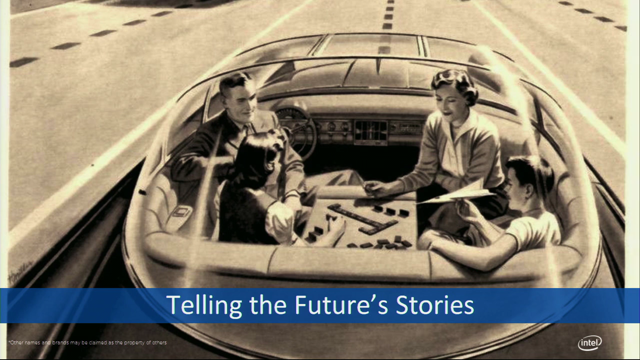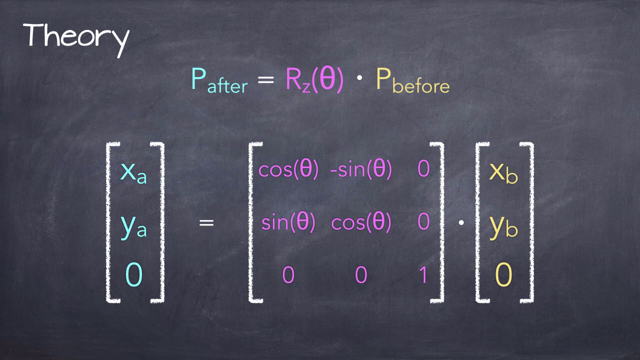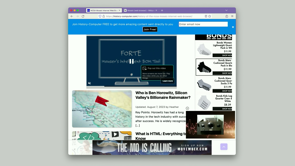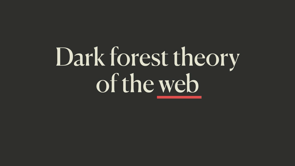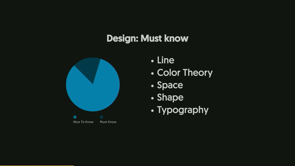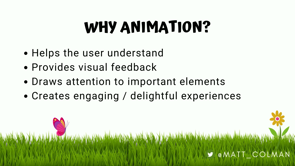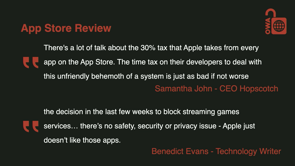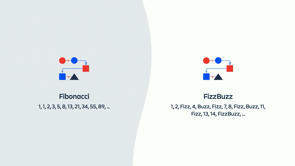All the Things That Seem to Matter
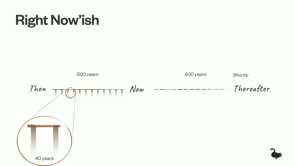
Introduction
Tea begins by questioning the conventionality of time and fairy tales, linking them to our everyday understanding and the narratives we share with children about fantastical characters like Santa Claus.
Fairy Tales and Reality
Explores the connection between fairy tales, technology, and reality, suggesting that the constructs we believe in (like Santa Claus) serve broader societal and existential purposes.
The Concept of Now and Time
Discusses the philosophical and physical notions of "now" and how society deals with the concept of time through science and personal experience.
Time, the Universe, and Human Existence
Considers the fleeting nature of human existence in the grand timeline of the universe and how we contextualize our place within it.
Word of the Day: Spirare
Explores the etymology of 'spirare' and its derivatives, linking language to breath and life, setting the stage for a discussion on the power of words and their impact on reality.
Historical Insights into Mathematics and Technology
Covers historical figures like Euclid, Pascal, and Newton, and their contributions to technology and philosophy, emphasizing the interconnectedness of mathematical and philosophical advancements.
Historical Innovations and Their Consequences
Reflects on the impact of historical inventions like leaded petrol and CFCs, discussing their intended and unintended consequences on global health and environment.
Personal Journey at Google
The speaker shares personal experiences from their career at Google, discussing major projects and the evolution of their role, intertwined with broader reflections on technology's impact on society.
Alternative Realities and the Nature of Knowledge
Discusses the potential of alternative realities and the multifaceted nature of human senses, advocating for a broader understanding of perception and reality.
The Future of Decentralization and Technology
Explores the implications of decentralized technologies like NFTs and the need for a new understanding of digital ownership and internet structure.
What was I going to say?
I'm very worried that this is remarkably un geeky.
Every talk that I have heard, I've been like, I don't understand a lot of these words.
But I think I should, I'll start conventionally, is everybody, sitting comfortably?
Good, then I will begin.
Once upon a time.
Now what is a time?
And how does one get upon it?
I think that this is a phrase that, you actually won't hear, or when you do hear, you generally think a long, time ago in a galaxy far, away, or, like a princess or a dragon.
And it's part of the, fact that we use, it's part of the fairy tales we tell small children, we tell small children lies, like, all the way up, we tell them all about Christmas, we have Santa Claus, and somehow Santa Claus has reindeer that pull him around, and he goes down chimneys, which is very weird and quite hard to explain to small children, and brings presents, which is also quite strange and hard to explain to children, why strange people are bringing you presents in the middle of the night.
And there's little baby Jesus.
And it's all the same.
And it doesn't really make much sense.
And it's part of this fairy tale, that we tell our kids.
It's actually like this astonishingly huge construct.
NASA are involved.
You want a conspiracy?
Father Christmas.
Depending on where you're coming from, Father Christmas is a massive conspiracy by everyone over the age of about 7 or 8 to defraud small people Like, we tell them that they can grow up to be an astronaut, which is actually a lie, until they start talking about wanting to be an influencer, and then shit gets real, and they're like, this is bad!
So this talk is about fairytales.
It's not about fairytales.
It's actually about my life, but it's, about fairytales and technology and reality, and the idea that actually those are all fairly similar.
They all cross over, because we can't really prove Santa Claus doesn't exist.
We can't prove that anything is real.
We can't like, we know that none of it makes sense and no one's in charge, but those are things that we don't tend to acknowledge openly.
We don't set them up as a, maybe we should put someone in charge who understands what's happening.
We all know that's just not true.
Like your CEO has no idea what's going on.
And they feel very lonely because they can't possibly say that to anyone in the company.
That's why they all go to Davos and things, because they can sit around in bars and go, I have no idea.
And whilst this talk might get a little bit weird when we talk about Prussian militarization and the buildup to World War II and the origin of the Enlightenment, trust me, it will, it's a framing device.
It will all come back.
Sometimes like we need to start at the beginning.
And I think we don't generally start at the beginning.
But if we talk about like the idea of now exists, this second, where we are in this shiny new conference center, like we know that now exists.
That first now is now, then, this now, exists, right?
Now always exists.
It's always a thing.
Then, the first now, and that could actually be yesterday, or it could be like the origin of the universe.
It could be like 13 billion years ago.
We don't really know, like all we know, all we ever really know is that there is a now.
And in order for us as a society to deal with this, we tend to divide the world into like facts and feelings, things we think and things we observe, things which are empirical and things which are subjective.
But time, especially, is incredibly subjective because, we feel time.
We have no, I'm wearing a watch to try and keep track, but it's really a bad idea actually.
We feel time.
We actually physiologically feel time.
It's a sense, like proprioception and all of the other ones that sit outside of those five.
But we also measure time.
With physics, whether that's using water or like wax or springs or cesium or the latest, coolest atom that we've discovered, like we, we, we measure it and those are totally different.
So you have to hold this idea that time itself is completely different things for you and for the universe.
Mean, we also do believe in a future, which again, could be like the end of this talk, or it could be the heat death of the universe.
Who knows?
But we, can't prove that a future exists.
We only have now.
Oops.
And I could do an arrow of time thing here.
We could get into the physics of this.
It's very interesting.
You lot are very geeky.
I'm sure you'd enjoy that talk.
We're not doing that talk.
But I did notice that in terms of relational things, I was like, how long until the heat death of the universe?
Just, out of interest.
Cause we've been here 13.8 billion years.
And the one that I liked the most was like, we're about 10 days.
If you imagine it's a hundred years, the universe is going to live to be exactly a hundred, and on its birthday, it's going to die.
Like we're about 10 days in.
We're 10 days in to a hundred year existence.
If we narrow that up a lot into that past stuff, again, not really sure what's going to happen in the future, but like sapiens broadly, not getting into an argument about it.
Let's say a hundred, 175,000 years ago, that's like about 65,000 years.
That's like the heritage of this country, like the cultural roots of traditional owners.
Not really sure about the custodians thing.
And keep thinking about a white, explorer lawyer.
Arriving in 1789 or something and going, so you, are not the owners of the land.
You're just the custodians.
So there's no legal owner of Australia.
Interesting.
This has got like little things of 5,000 years, and there's birth of Plato.
Right now, basically, in our, concepts, and there's a probable end of our species.
Narrow it up a bit, see if we can get that a bit better, Plato, back down there, so that's 500 BC, so that's 2000 years, 2500 years, there's us, turning up here, handy, just about now, like even in that time frame, there's a probable end of the species.
So if we get it even closer, like 500 years.
Which really in that big scheme of things is not very much.
We're well inside the, Oh, in the now, like there's Pascal, one of my favorite child geniuses, There's white colonization of Australia.
We are shifting it down that scale.
Look, that looks much more reasonable, right?
If we deal with the world as if it's only existed for 500 It's arguable.
It's a defendable position.
I'll come back to that.
It's a gag, but I will come back to it.
Someone was like, they've been a bit pessimistic, the keynotes.
I was like, oh dear , this is really important.
Like we, we are a statistical blip.
We are a tiny anomaly.
If you were into statistics, you believe in that sort of thing, like it's an outlier.
You're just gonna erase it.
If you put us on the big long line, you don't even have like pixels small enough to put the existence, this spike in the existence of humanity, like we do not exist in the history of the universe, not now, and certainly not future now.
And I think that's really interesting.
We're basically a stochastic anomaly.
You might've heard about stochastic terror.
I think it's really interesting because I think humankind is basically a stochastic moment.
We're right at the spike.
That's so cool.
Like we're right at the tip of an incredibly, for us, quite interesting experience, which is being alive, but it still is all between ourselves, entirely relative, very, kind of wishy washy because we basically all have to agree that everything exists all the time, constantly, every day.
And I don't know if you remember this advert from Facebook?
It was literally their first advert.
And we were sitting there at Google going, fucking hell.
Oh, we don't have much to worry about here, guys.
This is fine.
They're worse than Microsoft.
And, I was like, no, it's really profound.
And then everyone laughed more, but it is really profound.
Cause actually, I don't know if you remember, it's basically just that same sort of thing.
It's systems are interchangeable.
And tools are like functions of systems, which almost works in code.
And it's also not new.
It's not a new idea.
It's Plato's idea.
Like it's, you may think that philosophy and you may think that bad luck if you do is that has nothing to do with technology.
But without this foregrounding, we can't understand our now at all.
We can't understand AI, we can't understand the journey of AI, we can't have any meaningful conversations about simulation theory, even if it's possible to have simulation theory conversations, even if you've seen all four Matrix films.
So we need to know, and this conversation is a lot about so there's Plato believed in the essence of something as an idea, and next to him is Descartes who gave us dualism.
And next to him is Hobbes.
Who we don't talk about much because he's not very cool, a bit of a grump, Hobbes.
But he gives us foundations of like mechanical materialism, which is the essence of how we understand and what a computer is and actually how everything works.
And also that as a social tool, which is how democracy works.
And it's an important one, but like we tend to skip him.
There's Bishop Berkley, who is hilarious.
He gave us immaterialism.
He's the one like me saying, actually nothing exists.
Nothing exists, don't worry about it.
And then if we come down to our favorite meme in the world, which is, Dr.
Johnson reading Bishop Berkley's theory about immaterialism, which he very famously refuted, he very famously came out to church and was talking to Boswell or someone, probably Boswell, and said, I refute it thus and kicked a stone and broke his foot.
This is a very interesting, it's still used in philosophy to discuss like whether materialism and immaterialism, like at what point is something real?
There's Nietzsche, he's helpful in these situations.
He actually was very anti materialism, but was fundamentally materialist, which is typical for him.
And then you just scoot a hundred years on, which is not very long, and you've got, That's Nick Bostrom.
Anyone know Nick Bostrom?
Should know Nick Bostrom.
Nick Bostrom is the person who basically hypothesizes simulation theory and makes it possible for Elon Musk to sit in a chair and go, yeah, I reckon we're all a simulation, which is bullshit.
But I have got, it's not completely bullshit, but it's got it's more complicated, and has, I've got a digression warning, not going to talk about it.
Not, what we're here to do.
What about proper science?
If we put that line up again, the problem with proper science is that we're in now, and we're at the apex of our knowledge.
And all the then stuff is rubbish, oh actually then's over there, isn't it?
But future now, we're making an assumption, we'll have more knowledge, and current now will be rubbish, right?
Which means that current now is rubbish.
What's the point?
What are we doing here?
Why are we here?
Found this.
Love it.
It's not Lego.
I'm going to get it made for Lego.
And it's not communism.
This is about power.
We are actually here because about power, about empowerment.
And it's really important because understanding how reality works, understanding all the things you're doing, understanding why it's important to resist the, JavaScript industrial complex, which I do agree with, but was quite confused by.
As a species, we seem highly motivated by power.
Culture comes into that.
Culture matters.
But the other side of power, on one side you have culture, and the other side you have violence.
I'm going to make this t shirt up as well.
I forgot about that.
I was trying to think of a decent way to explain what I meant by power.
Not just like power.
Power.
And that's what I thought.
And then I was like, that's brilliant.
I should make that.
Sell it on threadless.
So there's power.
Power is another one of these fascinating topics that this talk isn't about and mustn't be about.
But it is really interesting because for me, it's a contradiction between violence and culture because culture, it's like the, parable of the sun and the, and the wind trying to, enforce change on an individual, on a state, like how to get the coat off the guy, blows and blows and blows, or the sun comes out and uses its tools and then gently lets the guy take his coat off And actually you find that violence has all these amazing proxies, like money and laws, which aren't real.
They're not, they're made up.
They really aren't real.
None of that's real.
Like a morality and sport, like none of it's real.
Like politics is ideas.
The fact that eventually people get so cross about politics, they just go and shoot people.
It's indicative of where we are and that actually all of these things, even language, and I do think coding, it's like the law or Latin, these are things that we use to obscure or frankly, JavaScript frameworks, like to move us further and further away from the actual source of power.
The law makes sure that we can't understand it.
The church fought so hard and killed so many people to stop the Bible being translated into English.
Coders have put in so many frameworks, now it's broken everything.
It's a form of violence.
You'll hear people talk about different kinds of violence.
That's one of them.
And actually what happens is that the now, the closer you get to the rawness of it, you begin to see violence breaking out.
We're beginning to see that kind of behavior at the moment.
It's really problematic.
And the counter to it is culture.
It's about community.
It's about belief.
It's about values.
It's really interesting.
Digression, not going to do it.
Must not do that one.
But I do think it's really important for you to make a choice because.
You are incredibly powerful people in this world.
I think we'll take a break.
Let's just do word of the day.
Word of the day, Spirare.
It's Latin, root for respire, to breathe, repeatedly.
It's also Latin for aspire, to breathe upwards, conspire, to breathe together, perspire.
To breathe through our skin.
Transpire.
Things transpire.
They breathe across.
To inspire.
We breathe into.
To expire.
We breathe out.
And then we stop.
End.
And if you're wondering about spirit, spirit is the breath of God.
What you guys do is work with language.
There may be layers of obfuscation, but fundamentally what you're doing is building with language.
And I love this as a sort of very quick meditation in the middle of asking you whether you want to be a violent tyrant or a hero for good.
More history.
Let's go back to Euclid.
Everyone know Euclid?
Good.
Euclid's our base level, like that's, it's a kind of binary form, really.
It's like the, these are what all of our geometry is built on.
It's like what, and then when you get into enough maths to discover that's all bullshit, he's, it's his fault.
Newton's theory, Newton's recipe, but like all of that's built on Euclid.
Pascal, who I mentioned earlier, one of my favorite, Child geniuses also, basically came up with the theory of probability, do you guys know, do you, do we do this much?
Do we do, the fact that most old philosophers are also mathematicians?
Pythagoras, all that guy, Archimedes?
No?
Okay, you should, right?
These are things you should know.
They should be like, ah, Pascal, yeah, I know Pascal.
One of the reasons you should know Pascal is because Pascal invented the first computer.
Actually, amazingly, 400 years ago, oh no, he was born 400 years ago this year, and he was 19.
And his dad was asking him to do, who is a tax collector, was asking him to do some shit boring maths, and he was not happy about it.
And he effectively invented a counting machine.
It's a calculator.
You can see it in the Musee du Metier in Paris, which is a brilliant museum.
And the best thing about it is it's completely empty, but you can see decimal clocks, you can see the first litre, you can see all these amazing things.
It's really interesting, a bit French, but apart from that, Especially if you're into history, chronology, which is so skewed.
It's Wikipedia.
If you read the Wikipedia in German, it's just not the same as the Wikipedia in American, like they literally think different things are true and it's in Wikipedia and it's it's the only rollback for fact that we're going to have.
In 10 years time, when we've let generative AI run riot across our platforms, we're not actually going to have any way of saying, what was true, by the way, when we started this?
And it turns out what is true massively disagrees with itself.
Interesting.
Worth knowing.
There's Newton and Leibniz.
They basically had the all time mother of, what's it called?
Stack overflow kind of comment wars, like about who built Calculus first.
Like Newton's no, I started when I was like 12.
Honestly, it's in the back of my journal.
Like it's super dodgy.
But they basically both simultaneously asynchronously came up with JavaScript, not JavaScript, but pretty close.
They come up with Calculus.
They come up with algebra.
That's what they're, that's what they're developing.
And they did some other stuff, but mainly they came up with Calculus, and they argued a lot.
There's Babbage and his Difference Engine.
Everyone know Babbage's Difference Engine?
Yes, you have to know Babbage's Difference Engine.
A, it's a really good book by William Gibson.
B, it's, the first kind of, theoretical computer, way before Turing, which is, again, a counting machine, but then he goes on to make another theoretical computer called the Analytical Machine, the Analytical Engine, which is really a computer.
And that's where the kind of like grand myth of Ada Lovelace comes from, which is that Ada Lovelace literally was in good conversation with Charles Babbage and was writing what we would now think of as code.
The only reason they didn't build this machine is because it's mechanically, they couldn't cut the gears fine enough.
You couldn't do it.
It couldn't be built.
When they did eventually build it, it works, I'm not sure, taking the word for it and that.
But it's really interesting.
I love Ada Lovelace, I'm sure everyone knows Ada Lovelace, because we don't have many female heroes, and, partly because she's the granddaughter, the daughter of Byron, Lord Byron, who's a poet, probably don't know him either, and, she died when she was 36, which is always cool, and, she wrote the first computer code.
Yeah.
Like, she was the first coder.
It's written down in a book.
It's great.
We don't have many heroes.
Here's, basically everyone I've talked about so far has been a white guy, right?
Here's another white guy, quite important one, Von Neumann.
I haven't seen Oppenheimer.
I assume he gets a big part in it.
I hope he gets a big part in it, because if he doesn't, it just sucks.
Because basically he comes up with ISA, which is the original computer, like after Turing's bombs, which again is a different kind of thing.
So Colossus, nice, not really what we end up building our computers out of von Neumann's, maths.
Maths, engineering, it's engineering, it's not maths, is what brings us to the modern age of computers.
And he calls it MANIAC.
And the best thing about them calling it MANIAC, which has got some wonderful, oh yeah, like the mathematical analyzer, numerical integrator, and automatic computer model, because at that point computers were just, people, everyone should watch, Hidden Figures, brilliant.
That's the computers, so computers were humans and then, suddenly they're not humans because we've automated that process and this is it.
That's that machine.
It weighs like half a ton.
And they couldn't get it out of the building, but it's really important history.
And we're fudging it over, we don't care where we've come from, we should care where we've come from.
Actually, the reason they called it MANIAC was because they were over the silly acronyms that were coming up, people were coming up with for their, new computer things.
That was it, was meant to kill silly acronyms dead, it's only 30 years until someone comes up with ELM, and then PINE.
Anyone remember Elm?
Oh, you're really not old, are you?
So Elm is Electronic Letter Mailer.
And then Pine, which I love, is Pine is not Elm.
Never be a good recursive joke in, in, in Geekland.
Everyone know Engelbart?
Everyone know the Mother of All Demos?
Again, it's on Wikipedia.
Gotta go watch it.
It's really important.
He's, this is the first mouse.
But he does amazing.
That's the patent of the first mouse.
You really should go and watch it.
It's in 1968.
It's this huge hall.
He basically demos hypertext, and the sort of graphical user interface, and networked computers, like he sends a message, admittedly to another computer on the stage, but like he sends a message between computers, which had not been done, networked computers.
Then Vint turns up, we have TCP IP, we have packets.
I'm getting into your territory now, aren't I?
You all know Vint.
So Tim Berners Lee turns up and does something completely astonishing, which is, despite having a perfectly good patent on the web, he doesn't effect it.
He doesn't actually attempt to own the web or the idea whatsoever.
And he also has just the naffest kind of that's his speech.
Try it.
All right.
I actually tried the internet while I was like, my first computer thing was back in 1994, my first internet, first time I experienced the internet was 1994, that you could count the number of servers around the world on two hands.
And, I was at Oxford and we were doing this thing and the text would come up and I genuinely thought, this is shit.
What's the point?
And actually that's something I've carried through my entire career.
This is just one of my favorite graphs that I wanted to put in there because I think everyone should bear in mind that culture thing, that idea that we could be doing good, that we can be doing something, we can be doing anything.
This is Clay, he's an old friend, and David, who's an old friend, and David listening to Clay and going, huh, interesting, draws this.
The best bit is that he drew it and it was like madly out of scale.
And then he actually did it to scale.
It's fuck.
It's, that's how long it takes to write Wikipedia.
That's how much time we spend watching TV each year.
You work out which is which.
Then you've got the Declaration of Independence.
Cyberspace is also very important, actually.
And really contentious.
Because we do have a cultural history.
The web has a profound cultural kind of neoliberal, egalitarian, humanist, basically fuck you, philosophy.
That's what took Tim Berners Lee, that idea, and turned it into something quite extraordinary for quite a long period of time.
Unless you're looking at things on a decent size scale, in which case it was like 10 years, 15 years, 20 years, maybe, but you should read that.
I don't know if you've read it, but everyone should go and, what's his name?
Perry Barlow.
Everyone should go and read John Perry Barlow's Manifesto, partly because he wrote it drunk at Davos the night before it was due, and then just emailed it to a user group.
And everyone's wicked!
And he woke up the next morning and it, that thing had happened, where he'd accidentally written the kind of the, what's it called?
The Declaration of Independence of Cyberspace.
It's oh, I've got a headache.
Shit!
What has happened?
This is like the Hodler.
I don't know, that's a crypt.
I think you mustn't do that.
You And it leaves lots of really, interesting things.
I keep having conversations about Hamas live streaming, like atrocities, war atrocities on, TikTok or whatever it is, Facebook, any of them.
And I keep thinking, or rather, I keep having this rather awkward conversation where I'm like, yes, terrible.
However, go with me here.
Imagine if we'd had TikTok at the Battle of the Marne, where half a million people were killed and injured.
You see that grassland ahead of the German soldiers with the nice pointy helmets?
That's no man's land in TikTok.
About a year's time.
That's the first major battle of the first world war.
I can promise you if we'd been live streaming that, you probably wouldn't have seen tens of millions of people die and a huge global disruption.
There's no real reason.
World War I is fascinating.
We're going to skip the bit about Prussian militarization, promise you.
But it's really fascinating.
Like we have to understand what we're doing and we have to see the benefits.
We have to consider them and we have to look at them in the face.
Now, like after all that goodness, along come like a bunch of white guys, and they a little bit fucked it up.
Jeff you know, Chad, I'm sure you remember Chad.
Like the reason YouTube cost 1.
4 billion dollars is because they copied, like they left the Saturday Night Live stuff up.
I was at Google at this point, it was really annoying.
So Google Video was fine, more users than YouTube.
YouTube leave copyrighted material up, just don't bring down the Saturday Night Live stuff.
It literally takes about a week before YouTube's figures are through the roof.
A year later, Google had to pay 1.
4 billion dollars for them.
And then, paid 1 billion to Viacom for the shit that Chad had done, and Steve, admittedly, and the other one whose name no one can remember.
Breaking the law.
They did really well out of it.
Mark was on stage in 2009 saying privacy is dead.
We had that conversation in 2009.
I don't have time for people who want to come at me at all.
In 2016, 2017, and go, you should do something about privacy.
It's no, we should have done something about privacy.
That's a then conversation.
It's not actually a now conversation.
We have some issues.
I love my boys.
I'm actually very fond of them as people, but man, they fucked us up.
And they fucked us up partly by watching all of these other people do things that we said we wouldn't do because we were good people.
And then we lost loads of money.
And actually our shareholder said, yeah, how do we balance the don't be evil thing with the don't be idiots.
Because society doesn't care.
You're not holding them to account.
You're still not holding them to account.
You're still not holding them to account anywhere for any of these things.
Just not being held for account.
Like literally transforming like one of the, like one of the world's information sources, I'm not going to carry on.
Like Sam, love him, an idiot.
Shouldn't be put in charge.
Like that one's quite easy.
Kazanik is just Uber.
Like they're just, I think that's, it's a category in itself.
Actually I put that in, cause I really wanted to talk about Uber, And AI and like proprietary networks.
And I don't think we're gonna get around to it, but it's a really interesting topic, tangent.
And feedback loops and how Uber drivers go down the wrong track because they're reading their own devices.
And you're like, you realize you're only going down that track because you're reading your device.
And every time you go down that track, you're basically reinforcing the AI that's watching you go down that track, and that's making a rut in the AI.
Uber rut has also other connotations as well.
I follow that, but and, Sam Altman has, I'd love the gall of someone who can go, yeah, we really fucked up, but can you legislate so no one else can come into the market, please?
That's massive, like you carry that.
It's like the guy who invented leaded petrol, which killed a hundred million people.
And then went on.
To invent, neons, CFCs.
Killed millions of people.
That's a dude.
And both of those were considered brilliant, ground, changing inventions at the time.
What's his name?
Mulleridge?
Milleridge?
And, like they were really good tech, brilliant, changed the world, actually really changed the world.
Refrigeration really changed the world.
Teflon probably less but like they made a huge difference.
Cars going, look around you.
That's not what the world would look like if this guy hadn't worked out how to put lead into petrol.
Technically killed five of his assistants doing it, but said it was completely safe.
Five died.
These are not problems.
They are not now problems.
They are then problems.
They are fuck ups.
And we mustn't treat them like now problems.
The AI thing is not a now problem.
This is a fuck up.
The internet is a good thing.
Universal access to information is good.
The internet is a bad thing.
Basically because all that goodness has basically been turned into social.
Basically been turned into money.
And the really old question is, what do you want the web to be?
What are you going to go and do with your new frameworks and your new cool things and your AI?
And use it, definitely use it.
I'm not saying it's bad.
I'm not saying any of that stuff is bad.
I'm saying it was bad.
And now it's here.
And this is what I keep thinking.
I'm like, what can I tell them?
What do they want?
So I joined Google in 2006, it's been a real blast.
I started as a boy and changed, Google, those things happen.
It's like an iterative process.
I also started as a contractor.
Really love to remind people that I started doing a three day a week, basically making PowerPoint slides because I felt a bit shit about myself and didn't have a job and my friend broke down and I got in.
That's how that started.
That worked out well.
Google as a whole has been a journey.
I didn't really like Google.
I really didn't like Google when I started.
This is from 2007.
This is sitting in a meeting, big meeting in 2007 for an hour and doodling and you're like, oh, that's worrying.
I wonder where that came from.
I stayed because I believed in it.
I really believed in it and I became, I believed in it more and more I still believe in that mission.
I still believe in the mission and I still understand that actually the money, was to organize the world's information.
And then eventually we began to organize the world's information.
To make money!
And that was the line that I should not have crossed, but I stayed.
Probably for about seven years, a bit too long, overstayed my welcome.
They got rid of me this January, along with everyone else.
It was very handy.
I liked it.
It was good for me.
I have had a really, interesting time, and it's been a wonderful time.
I've been very lucky in my career.
I've been able to do extraordinary things all over the world.
It does bug me that doesn't exist anymore.
I was just down at the board meeting at ACMI yesterday, which is why I wasn't here, talking about why there's a museum for moving image and screens, and we're not there, there's 30 years, 40 years now of history, we've just been through all of it, there's a lot to do, but the web made my whole life happen, it even made my transition happen, if it hadn't been for the internet, I'm not sure I'd be here, partly because I probably wouldn't have, I'd have stayed in the UK, I'd have worked for an arts organization, I was working for charities.
I certainly wasn't going to get to meet these people.
I certainly wasn't going to be given like that opportunity.
And I was very, lucky, I think.
I also got to do some cool things at Google.
We launched Chrome, which was wild, because Microsoft, you might have heard of them, had this browser.
And that was the internet.
People were like, what is the internet?
And they said, you click on the E thing.
So actually launching a new browser was like trying to teach people that you could have new hands.
It's like So that was fun.
And we got to launch Maps.
We got to launch Street View.
We got to deal with the backlash on some of the things from Street View, and Maps, and the privacy, and the accidentally collecting loads of people's data, it was a fun time.
We got to design the logo for Android, which I can tell you, happened in one weekend in exactly the kind of fuck, we need a logo, kind of rapid sprint, zero iterations, kind of decision making that you love to see in a startup.
Ira, Ira, who's idea that is, that's her work.
It's just like all her work.
She's what about this one?
Yes.
Perfect.
Let's go.
I need a drink.
Let's go.
And we got to do the Google logo, which, thank you, you're very welcome.
Like there, there was, also really wild because actually, if you look at that, if you look at the dots, if you look at what's happening, and remember, this is a good, or whatever it was 6, 7 years ago.
It was really important for us to not, we didn't really care about losing the serifs, although they were naff, what we cared about was the idea that actually we knew that this, logo was going to be incredibly dynamic.
It's a bit like when the 2012 London Olympics introduced their logo in 2004 and everyone was like, That's shit, because it looked like something that you might see in about 2015, so it was actually a little bit ahead of itself, but it's cool.
I still love it.
I've got lots of stuff in there.
I think it's Will Follins.
It's really worth following brands in that way, to see where they see the world coming, because they are really seeing where the world's going.
You can learn a lot from other people.
Oh, I got to do a website for the Pope.
That was fun.
But to the YouTube site for the Pope.
That's real.
That was their first YouTube site.
I did that and we got to do the Queen.
So I met the Queen 'cause we made her website.
Fun things used to happen in the old days.
It wasn't all about scaling and like load bearing , what the fuck?
But it was mainly dumb luck.
It was really luck.
That found me in that situation.
It was about saying yes to opportunities and just doing the thing that's in front of you.
Did I make a difference?
Not really.
I didn't really make much of a difference.
I tried.
Like all of those things we shout about that so much, GPT is another one of those kind of problems where you're like, yes, GPT 4, oh problems, GPT 3, like the world begins to go, this is a bit worrying.
Open AI.
Hey, have it anyway.
And we have chat GPT and you want to go, everyone's this is a problem.
And this is, when was this, last year, 21, 22, that started coming out.
You want to go, fuck you, 2015, 2015, Project Respect, GPT 2.
We're talking about the dangers of GPT and generative text to minorities all around the world.
We're talking about data genocide.
We're talking about what happens when you norm, create normative like dynamics.
Fuck you, that you won't listen.
We had it on all over the place.
It went all the way up to Google.Org and then they were like.
Oh, it's a bit hard, like we really fought.
I really fought and I, literally, it makes me boil when people go, it's a problem.
And it's no, it's a then problem.
It's not actually now problem.
Now, I reckon you should just go for it.
It's I'm sure there've been lots of talks on how to use it.
Good for them.
Go for it.
Make shit.
Make good trouble.
We did a NFT.
In 2016, which is annoying because the ERC 720 only came out in 2018, so it wasn't actually an NFT.
So we basically spent the whole time trying to explain what the fuck it was, because no one had heard of an NFT, but it was a book.
There's a book that you shared and you destroyed it as you shared it, because that's what happens to books when you share them.
We did ad free Google in 2011.
I say, we, I'm my way of removing myself from, it's like a barrier, all of us.
Yeah, we all did it.
We did ad free Google in, 2011, which was what you think it is, a subscription model where we don't take people's data.
It's it's pretty fucking obvious.
Or we have a non subscription model, a freemium model, where we do take people's data.
But we put that quite up front.
Seemed pretty obvious.
Oh, we did do the art project.
That still exists.
Arts and culture.
You're welcome.
Because we then used all of that to train the generative AI.
And I feel incredibly guilty because I sat in a number of galleries saying, we can be trusted with your images.
We will not exploit this, basically because we hadn't worked out how to exploit it.
Once we worked out how to exploit it, that was all off the table.
And that makes me upset.
That's the thing that I'm most proud of.
That's the emo transmoji.
It took four years, literally took four years, shouting.
And, every time I see it on anything, I'm really proud.
I'm like, I did that!
I'm trying to tell teenagers and they just do not give a shit.
You have no idea how hard it was.
And I think there's a lot of things that I'm still really, interested in.
I think there's a load of stuff that's happening.
I think it's the most fascinating time.
We've got IoT.
We've got like all the biotech stuff that's coming up.
There's all the battery stuff that's coming up.
Electric cars are going to be brilliant.
Driverless cars should be here because again, 2011, 2010.
Soon.
We're driving around in the driverless cars.
Yes, they may be hit some people, you know, how many people get killed by cars every year?
Do you?
Just interested?
A million.
So that's 13 million people who've died.
13 million people.
That's more than World War I.
Because wow, who would be at fault?
That's missing the big picture.
If we killed 13 million people in one go, people would notice.
Especially because 97 percent of them are other people's fault.
They're not mechanical error, it's not a no, I mean I don't know how many of you know this.
I've been in a bad car accident.
I've been in a couple.
One was definitely my dad's fault and it traumatized, it was very bad.
It was really bad.
Like I'm, still quite cross about it.
And it was 40 years ago.
I haven't thought about that for a bit.
But we need to look at problems on a more holistic level.
So every time you hear that argument, go, what are the other sides of that?
And these are all the things that I like to play with.
I'm very big on playfulness.
I'm very big on physical, digital, very big on IoT.
Very big on the idea that there's more to the world than screens because they annoy me.
And then you've got actual problems.
Now problems.
Climate change is a now problem.
I think of it as a science thing.
So let's leave it to those guys.
Bit of a problem.
Ah, fuck up.
We've known about that for 50 years ago.
So 50 years.
Ford put, what are they called?
How do you make electricity using the sun?
Those things, solar panels, Ford put solar panels on the roof of the, of the White House in 1973, and Reagan took them down in 1980.
We knew then and then, and we know now, and that's not acceptable.
We know about resource inequality.
One of the great problems of life is that there's enough for everyone.
Even though there's a lot of them, but yet we won't share.
Why?
Why won't we share?
That doesn't actually make any sense.
Demographic decline is my new favorite topic, subject.
It's also a massive rabbit hole that I'm not going down.
And also Elon Musk kind of agrees with it.
So I'm a bit like, but if you're doing your research, fascinating thing.
We're about 50 years away from, or 40 years away.
Depending on who you're going to listen to, but our lifetimes away from tipping below 2.1 people, at which point we begin to hit population decline.
And when it's like grains of rice in reverse, it's not a good thing.
And artificial intelligence, which you've all heard about, there are some problems, apparently.
It's not generalized artificial intelligence, which is what they're actually trying to freak everyone out with.
That's a long way away.
Actually, generalized artificial intelligence, the robots will come.
Then, and actually by the time I think they get here, we're going to be in so much trouble due to falling, population numbers that we're going to really need them.
Like I am looking forward to being cared for in my old age, actually no, I think my grandchildren will be looking forward to being cared for in their old age by robots, because there are not going to be humans to care for them until they die.
It's one of the great problems of educating women, making birth, like making birth control available, and giving them jobs.
All of this equality means less babies.
It's really fascinating, if we make it a better world, we're all going to die out.
Because everyone has to produce one person.
Otherwise, where do we go?
This is the thereafter bit.
You can't affect then problems.
You can't really affect now problems.
You can affect tomorrow.
What you do, the decisions you make, what you work for, where you work, all these things you've been thinking about, they really, genuinely affect tomorrow and you may not even realize.
How much you're going to affect tomorrow.
So these are your decisions.
And I don't want to put it in stark A B kind of ways, we're in an A B kind of conference.
So A B test yourself on this one.
Whose side are you on?
Tim, who I went for curry with once and I really love.
Or Elon, who I don't like.
Because I think he's a bad person.
Even if he's quite clever.
Here's my advice.
Stay ahead.
I read New Scientist.
I've actually got a copy right here.
I was like, oh yeah, that's really lame, you're actually carrying your copy of New Scientist.
I read New Scientist all the time, because I don't understand anything in it, and it's fascinating.
Sometimes they talk about the stuff that we know about, and you're like, yeah, that's better than you get in the newspaper.
They've got people who will say things like, there is no consensus.
You're like, hold the front page, what, there's no consensus?
Really?
Where else do you get that wisdom to go, turns out, we're not sure.
You can't even get that from your doctor.
I've got a doctor that says, I don't know what this is.
I'm like, it's great.
Let's Google it.
Read historically.
A lot of what we're building has been, was written about.
Gibson basically wrote us all our cyberpunk stuff.
Stephenson, Gibson.
Causes, a lot of problems as well.
Hesse's Glass Bead Game I think as a late horse is where we're headed with information, which is this astonishing ability to create like confections with different forms of knowledge from different strands.
And it's a completely extraordinary mind expanding exercise into what would happen when we can have ownership of knowledge, what can we do with that as humans?
It fits into that whole AI is a tool thing really nicely, and I think it's well worth a reread.
Brave New World's just my favorite dystopia because it's not really dystopia, is it?
It's it's pretty cool.
Everyone's just chilled out and fucking.
Didn't mean to say that bit when I could, that wasn't in the script.
Study the brain, understand what it's doing, understand what it's doing, and understanding what we don't know what it's doing, because we really don't know what it's doing most of the time.
It's an astonishing thing, and you, just should care about the brain.
That's what you're interfacing with.
Everything you do is interfacing with the brain, because everything's subjective, nothing's real.
That's the thing that is real.
And that makes everything else exist for everyone.
So study it.
Humans are fallible, but their brains actually all work in the same ways.
And that's what, often, like when we talk about time and things, that's what they're talking about.
Try alternative.
Alternative realities.
I hate, that, that alternative reality has become headset based.
Doesn't even really deal with the fact that there's way more than five senses.
It's somewhere between 13 and 20.
One of which is proprioception, which is our awareness of things in space.
So when I hit this, that's my proprioception going wrong.
When John can't see someone out of the corner of his eyes, that's actually not your eyesight.
That's a different, it's a whole different sensory realm.
Like the, ability to catch someone picking up, coming up on you.
Understand, like the idea of the umveldt, there's a really good book by, I think it's called The Beautiful World, basically about the animal world and how, many senses we have.
It just totally changes your perspective on everything that you're doing.
And then like the projects that I've got there, one is Ambulance Sound, which is all about what happens when we just use sound, because you can use bone conducting, you can use proper big headphones, you can use, actual ambient sound.
You can have four different inputs and that's before you start messing with those input sources.
Like it's, and we've only got one set of eyes and we've only got a three inch focal area, which is why your computer screen is a three square inch device.
That's why, because that's your focal area.
Everything else requires work.
We are fundamentally lazy.
Don't know if you've noticed.
We're really fucking lazy as a species.
Three inches square.
Perfect.
And then the other one is the oracles, which is about creating a kind of very, mixed reality.
It's with Punchdrunk, who are brilliant company.
And we created a play where like they're playing a game in their classrooms and then they go into the space and the space, the theater space would be would be the same as the game space and things that you've done in the game space reflected in the, theater space and vice versa.
And those kinds of mixed realities I think are really fascinating, especially from an educational perspective.
Decentralize your feeds.
This is just a random bunch of tokens that I spent ages trying to find on the internet before going, fuck it.
I wanted to go, you really do need to understand that, That's still coming.
NFTs is still coming.
That ecosystem is still coming.
Bitcoin is still coming.
Bitcoin is coming back actually quite hard at the moment because of like America's lack of functioning government mainly.
But, it's going to be fascinating.
I'm sure we have a load of people here who are in that decentralized space.
Like it leads to fascinating opportunities.
It leads to real issues for things like ICANN.
It leads to a point where we're going to be able to go, Ooh, which DNS server shall I use?
Like your DNS.
The bit of code, the, 4.
4.
4.
4, that's Google's, is the address book for the internet.
That's your, where you get all your IP addresses.
That's when you type it in and it changes it into the place that you're going.
Change that number, completely different idea, set of IP addresses.
If you look at it, basically, if you look at a different version of it, and it's not Gregory's, is it white pages we have here?
I can't remember.
It's such a long time ago.
It is that.
But if we just have alternative versions, so I'm quite big on the idea of a decentralized web for babies, which will be for parents, because they're going to authenticate you up the arse, like someone's going to come around and say, yes, you're a parent.
I see your children.
You can use this web.
You have access to our servers.
Everything on there?
Fine.
Super safe.
There's a fee.
Any payment will pay you any amount of money.
Decentralized web for babies, and small people, who are used to being liked to.
But if you don't know about that, if you're not playing, if you're not, I don't know how it works.
I know a little bit.
But that's all I do.
I don't know much about anything.
I know a little bit.
About a lot of things and that's very dangerous thing.
Apparently I quite like being a very dangerous thing.
Turns out it's quite useful.
Good thing to be.
Disrupt their world.
Okay, sure.
I like that phrase.
I hate, I hate what disruption does, but it's also how we move forward.
So do not pay any attention to their feelings.
Top tip.
I hate to say it, but they're not paying any attention to yours.
This has got to a very aggressive stage in the culture of the world.
We do not have time to be nice.
I actually don't know how this all plays out, but I do console myself with the fact that in about 400 years, nothing left, so fuck it.
Also, make stuff no one wants.
There's nothing better.
Unless you're being paid to make stuff that people do want.
But, I do find that journey, partly when you get to that place of understanding what they didn't want, which is really the hard part of any briefing process, it's can you possibly just tell me what you don't want?
Because otherwise we can guarantee that's what we're going to end up with.
So get that out early.
Make that, idea of the rapid iteration, first prototype, make it as, make it all the things you think they probably don't want because occasionally, they think that's so cool, and that's a lovely moment.
That's the only message I really want you to take away from me talking.
I know you've learned a lot over the last few days.
Thank you for staying as I went way over time.
Thank you very much.
